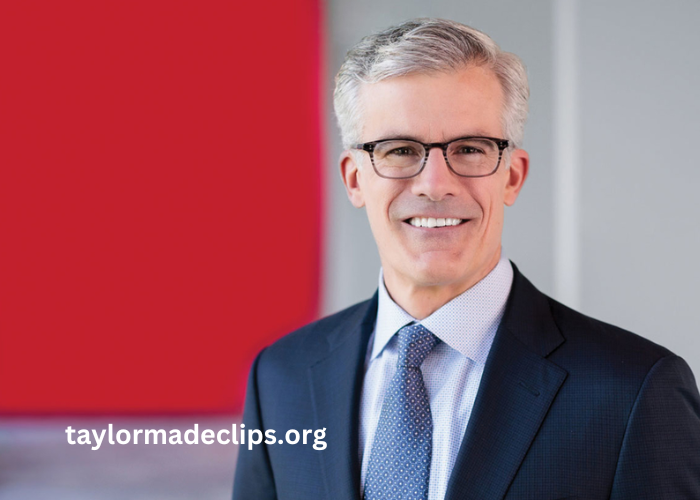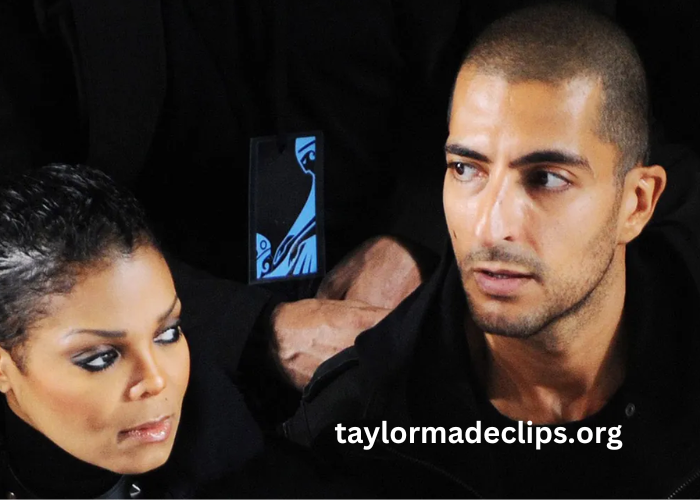Mortimer J. Buckley, known as Tim Buckley, has become a prominent figure in the investment management industry, serving as the Chief Executive Officer of Vanguard Group since 2018. With a career spanning over three decades at Vanguard, Buckley has played a significant role in shaping the firm’s direction and growth.
Under his leadership, Vanguard has witnessed remarkable growth, managing over $9 trillion in assets, and becoming the second-largest money manager globally, just behind BlackRock. His strategic initiatives and commitment to low-cost investing have helped democratize finance for millions of investors.
Understanding Mortimer J. Buckley’s net worth involves delving into his extensive career, the significant contributions he has made to Vanguard, and the financial ecosystem in which he operates. As an executive in a highly competitive market, Buckley has faced challenges from both established and emerging players in the investment sector. However, his dedication to Vanguard’s mission and his strong leadership skills have enabled him to thrive in this environment.
Key Points:
- Mortimer J. Buckley has been with Vanguard since 1991, steadily rising through the ranks.
- His leadership has contributed to Vanguard’s assets growing significantly, from $4.4 trillion to $9 trillion.
- Buckley’s annual salary as CEO is estimated at $700,000, contributing to his substantial net worth.
What Is Mortimer J. Buckley’s Net Worth?
Estimating Mortimer J. Buckley’s net worth is not straightforward due to the nature of his position as CEO of a client-owned firm. Unlike traditional corporations where executives may have stock options or personal shares, Vanguard operates differently; its clients own the funds, which in turn own Vanguard.
Nonetheless, several estimates suggest that Buckley’s net worth is likely in the millions, attributed to his long-standing career in executive positions within Vanguard. His annual salary is reported to be approximately $700,000, and this figure alone indicates a comfortable financial status, especially considering his tenure and the performance of the firm during his leadership.
While exact figures are elusive, Buckley’s wealth also stems from bonuses and benefits that come with his role, which can significantly increase his overall compensation. The increasing value of assets under his management adds to his reputation as a successful leader in the financial sector.
Table 1: Estimated Annual Salary and Compensation Breakdown
| Component | Amount |
| Base Salary | $700,000 |
| Estimated Bonus | $100,000 |
| Additional Benefits | $50,000 |
| Total Estimated Compensation | $850,000 |
How Did Mortimer J. Buckley Accumulate His Wealth?
Mortimer J. Buckley’s accumulation of wealth can be traced back to his strategic leadership at Vanguard. Upon joining Vanguard in 1991, Buckley began his career in a position that allowed him to learn directly from the firm’s founder, John C. Bogle.
This foundational experience was pivotal, enabling him to understand the principles of low-cost investing and client-centric services that Vanguard champions. Over the years, Buckley advanced through various roles, including Chief Information Officer and Chief Investment Officer, before being appointed CEO in 2018.
His focus on innovation and client satisfaction has led to significant growth in Vanguard’s assets, which has directly impacted his financial standing. As he implemented changes and expansions within Vanguard, including the push into exchange-traded funds (ETFs) and financial advisory services, the firm has attracted a broad client base, further enhancing its financial strength.
In addition to his executive salary, Buckley’s long-term involvement in Vanguard’s operations has likely provided him with benefits such as retirement plans and investment opportunities. As Vanguard continues to thrive and expand, Buckley’s legacy will also enhance his financial profile.
What Role Did Education Play in His Career?
Mortimer J. Buckley’s education has played a critical role in shaping his career trajectory. He holds an undergraduate degree in economics from Harvard College and an MBA from Harvard Business School. This prestigious academic background provided him with a strong foundation in financial principles and management strategies, equipping him for leadership roles within Vanguard.
His education not only provided theoretical knowledge but also connected him with influential networks that can facilitate career advancements. Buckley’s Harvard education has positioned him among other high-caliber professionals in the finance industry, allowing him to cultivate relationships that could be advantageous in his career. His dual degrees signify a commitment to excellence that aligns with Vanguard’s philosophy of serving investors with integrity and transparency.
Table 2: Educational Background of Mortimer J. Buckley
| Degree | Institution | Year Completed |
| Bachelor of Arts | Harvard College | 1991 |
| Master of Business Admin | Harvard Business School | 1996 |
How Has Buckley Influenced Vanguard’s Growth?
As CEO, Mortimer J. Buckley has profoundly influenced Vanguard’s growth trajectory. He took over the reins of a company that had already established itself as a leader in low-cost investing but faced increasing competition from both established and new financial institutions. Under his leadership, Vanguard’s assets grew from approximately $4.4 trillion to over $9 trillion, demonstrating his ability to capitalize on market trends and the increasing demand for passive investment strategies.
Buckley emphasized the importance of providing clients with cost-effective investment options, resulting in significant growth in Vanguard’s ETFs and index funds. He has spearheaded initiatives to expand Vanguard’s reach into international markets while also enhancing its financial advisory services, which have contributed to attracting new investors. Buckley’s strategic decisions, such as investing in technology and innovation, have allowed Vanguard to remain competitive and relevant in a rapidly evolving industry.
Note: It is essential to consider that Buckley’s leadership style emphasizes transparency and accountability, which have helped build trust with clients and stakeholders.
What Challenges Has Buckley Faced as CEO?
Leading a major investment firm like Vanguard comes with its unique set of challenges. Mortimer J. Buckley has faced significant competition from rivals such as BlackRock and Fidelity Investments, which have aggressively marketed their products and often undercut Vanguard on fees. The investment management landscape has shifted, with increased scrutiny on management fees and performance, placing pressure on all firms to justify their costs and value proposition.
Additionally, the growing popularity of alternative investment strategies, including cryptocurrencies and private equity, presents a challenge for Vanguard, which has historically focused on traditional index and mutual funds. Balancing the firm’s long-standing principles of low-cost investing while adapting to new market demands has required Buckley to make difficult strategic decisions.
Moreover, the impact of market volatility and economic uncertainty, as seen during the COVID-19 pandemic, tested Vanguard’s resilience and Buckley’s leadership. Navigating these challenges while maintaining investor confidence and satisfaction has been pivotal in determining Buckley’s success as CEO.
What Legacy Will Buckley Leave at Vanguard?
As Mortimer J. Buckley prepares to retire, his legacy at Vanguard is already becoming apparent. Under his guidance, the firm not only expanded its assets significantly but also reinforced its commitment to low-cost investing, aligning with the principles established by its founder, John C. Bogle. Buckley’s emphasis on democratizing finance has led to greater accessibility for investors at all levels, which is a cornerstone of Vanguard’s mission.
Buckley’s contributions to enhancing Vanguard’s technology and investment offerings will have lasting effects, ensuring the firm remains competitive in the rapidly changing investment landscape. Furthermore, his advocacy for financial literacy and client education will continue to influence Vanguard’s culture and operations, promoting an environment that prioritizes investor knowledge and empowerment.
His approach to leadership and governance will likely influence future executives at Vanguard, setting a standard for ethical practices and client-focused strategies that align with the company’s foundational values.
Note: While Buckley’s retirement marks the end of an era, his impact on Vanguard will be felt for many years to come.
Conclusion
Mortimer J. Buckley has played a transformative role in the investment management industry, particularly at Vanguard Group. His journey from a young assistant under John C. Bogle to the CEO of one of the largest investment firms globally illustrates his dedication and commitment to the principles of client ownership and low-cost investing.
His net worth, while not publicly disclosed in precise figures, reflects his successful career and the influence he has had in shaping the financial futures of millions of investors.
As Vanguard continues to grow and adapt to the ever-changing investment landscape, Buckley’s legacy will serve as a guiding force for the company. His vision for democratizing finance, commitment to innovation, and adherence to ethical standards will leave an indelible mark on Vanguard and the investment management industry as a whole.
FAQ’s
- What is Mortimer J. Buckley’s estimated net worth?
While exact figures are not disclosed, Buckley’s net worth is likely in the millions, with an annual salary of approximately $700,000. - How long has Mortimer J. Buckley been with Vanguard?
Buckley has been with Vanguard since 1991, serving in various roles before becoming CEO in 2018. - What significant changes did Buckley implement at Vanguard?
Buckley emphasized expanding ETFs, enhancing financial advisory services, and increasing Vanguard’s global presence. - What challenges has Buckley faced during his tenure?
He faced competition from firms like BlackRock and Fidelity, as well as market volatility and shifts in investor preferences. - What legacy will Buckley leave at Vanguard?
His legacy includes significant asset growth, a commitment to low-cost investing, and a culture of client-centricity that will guide future leaders.




